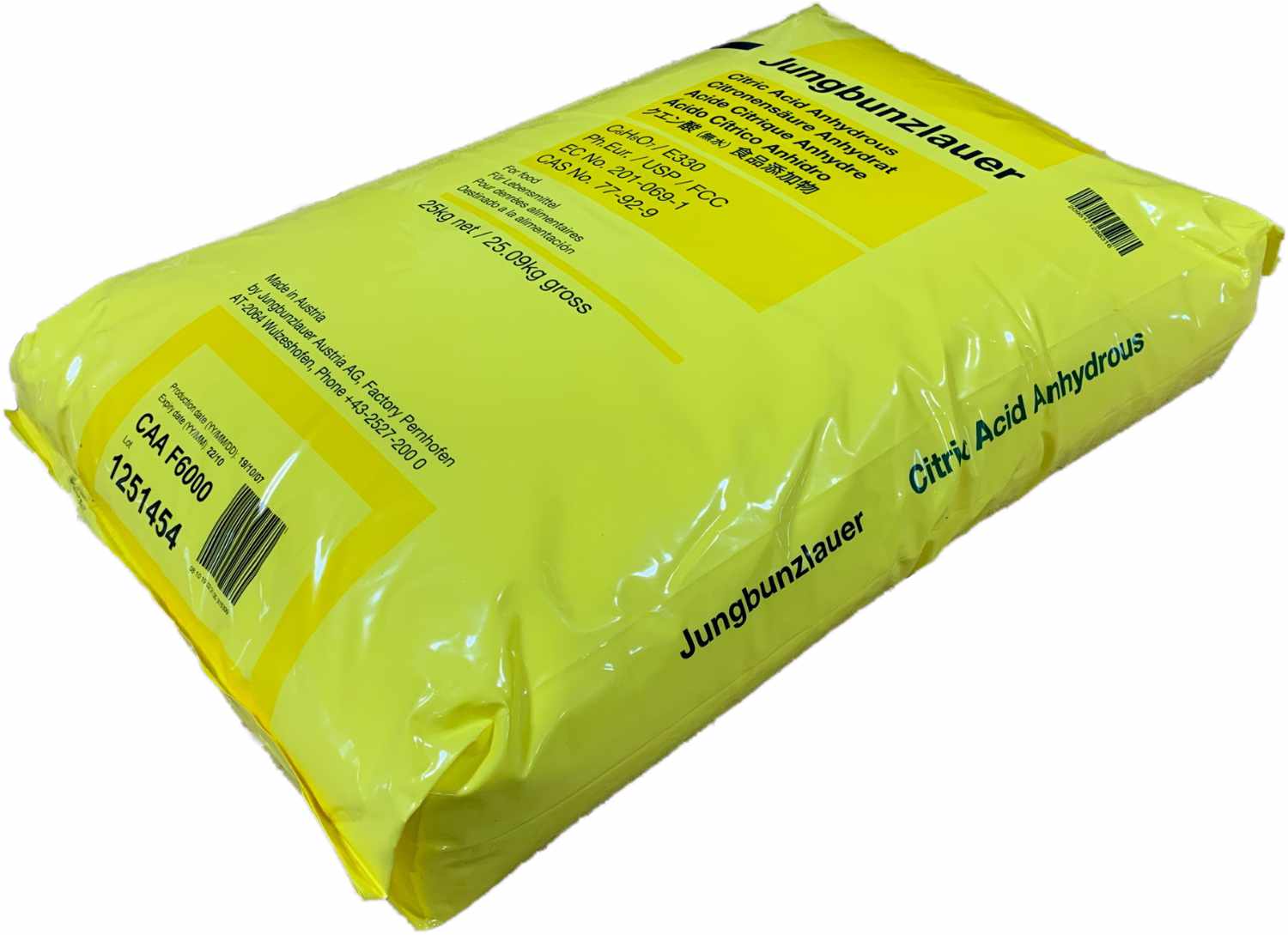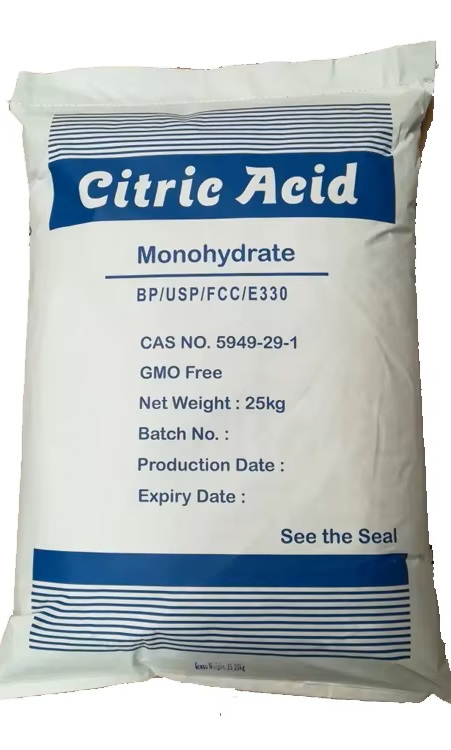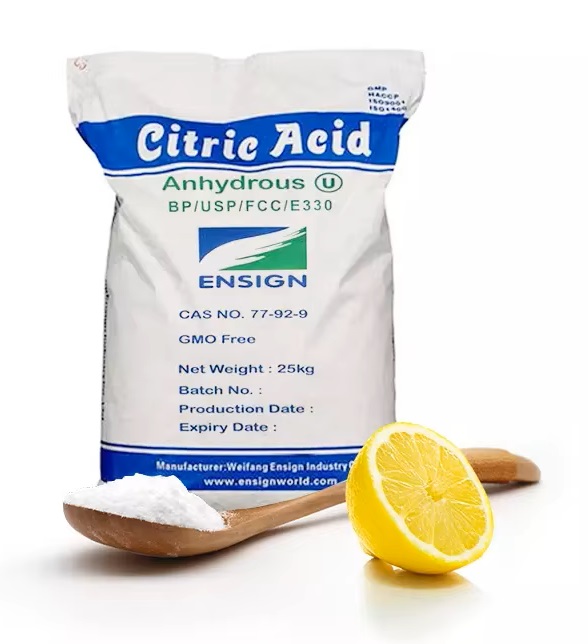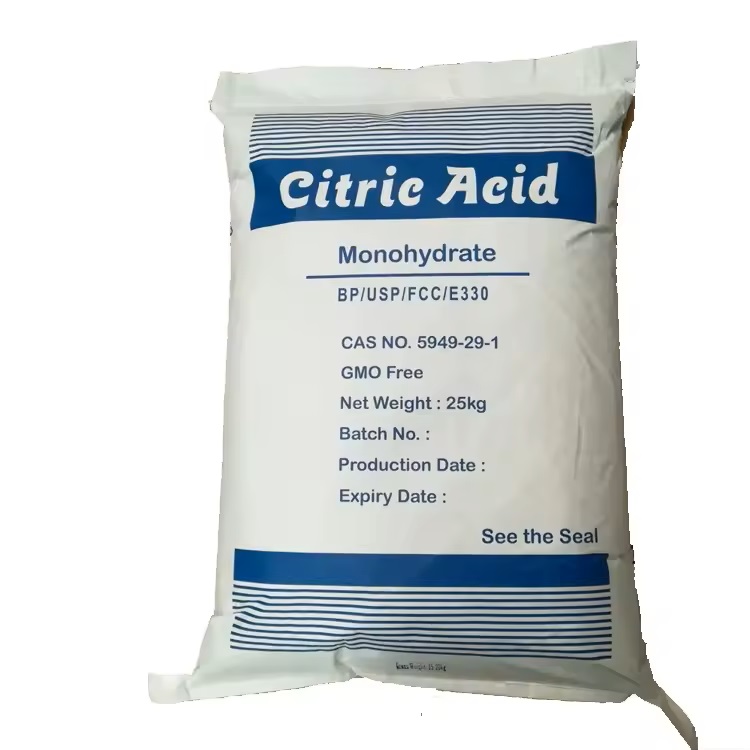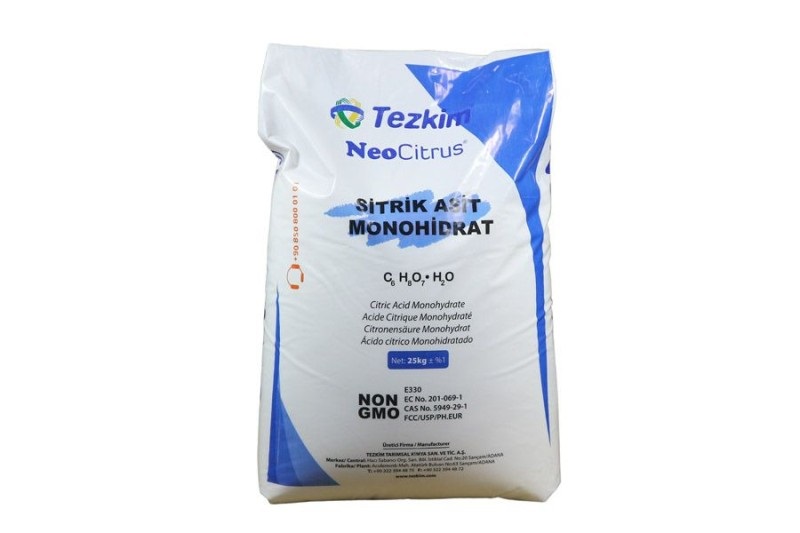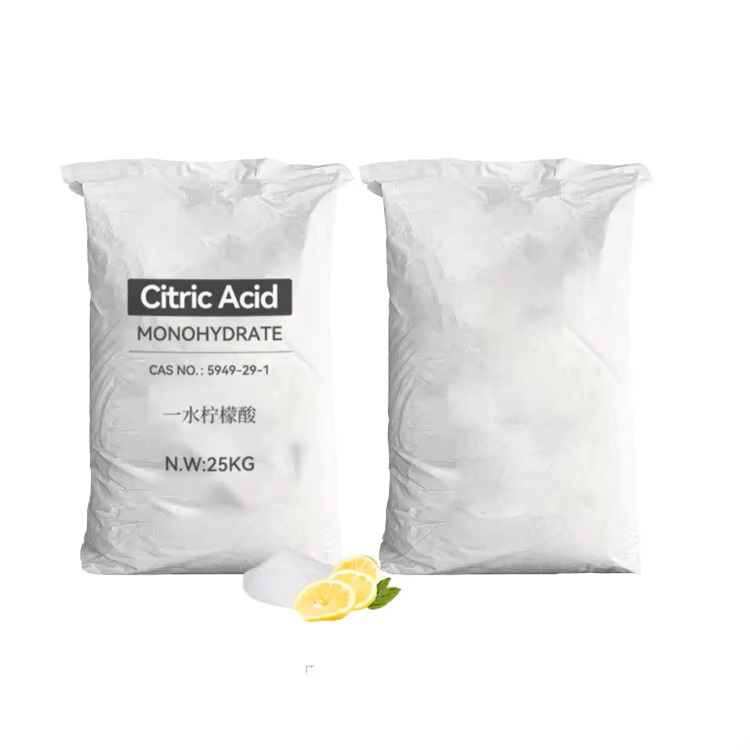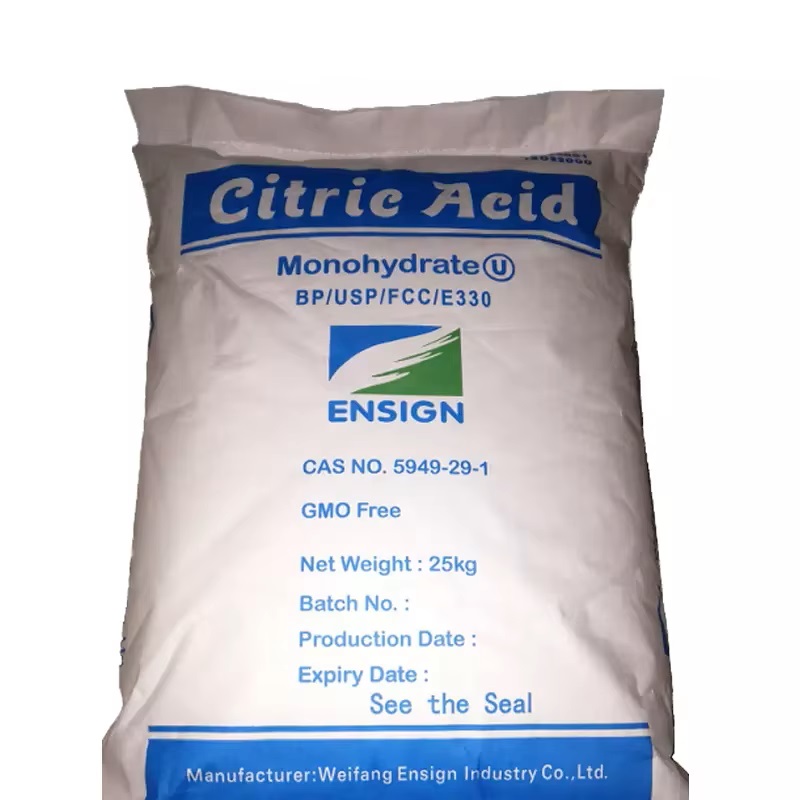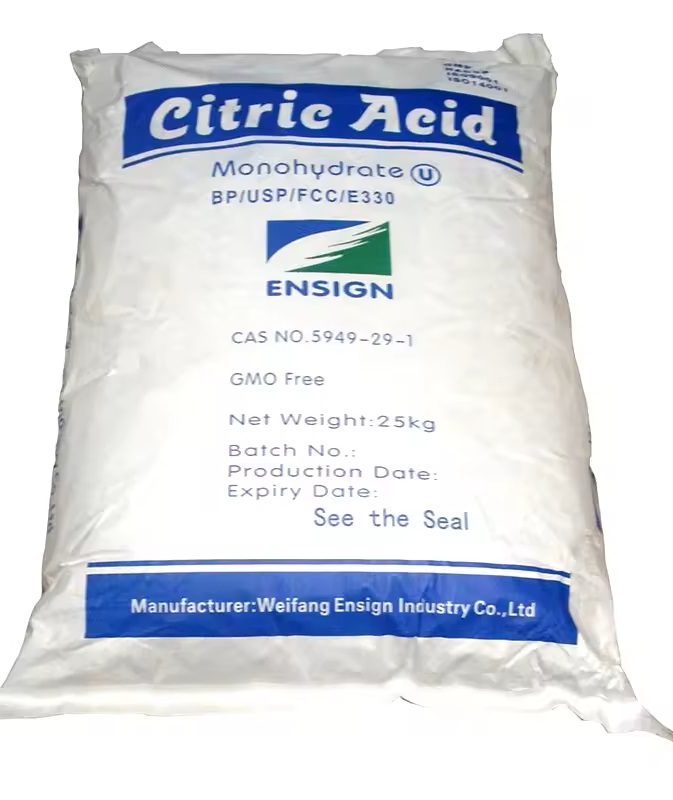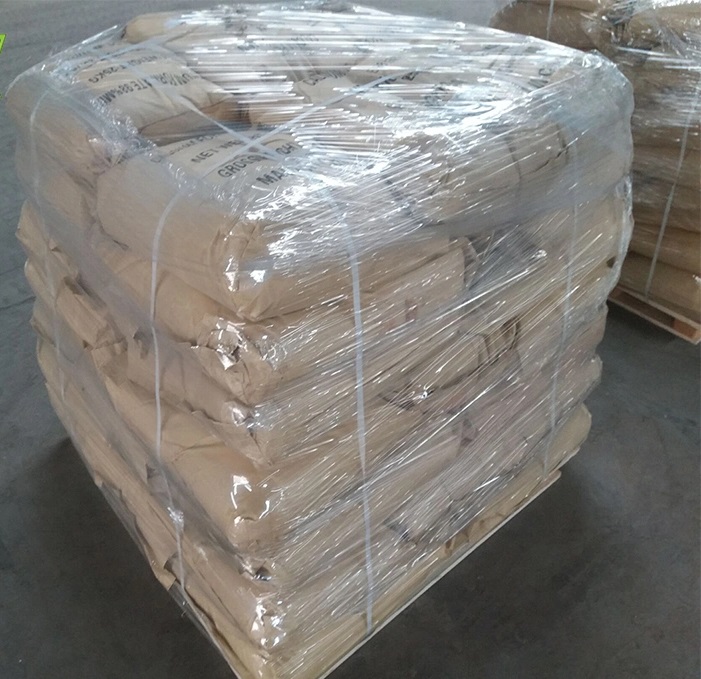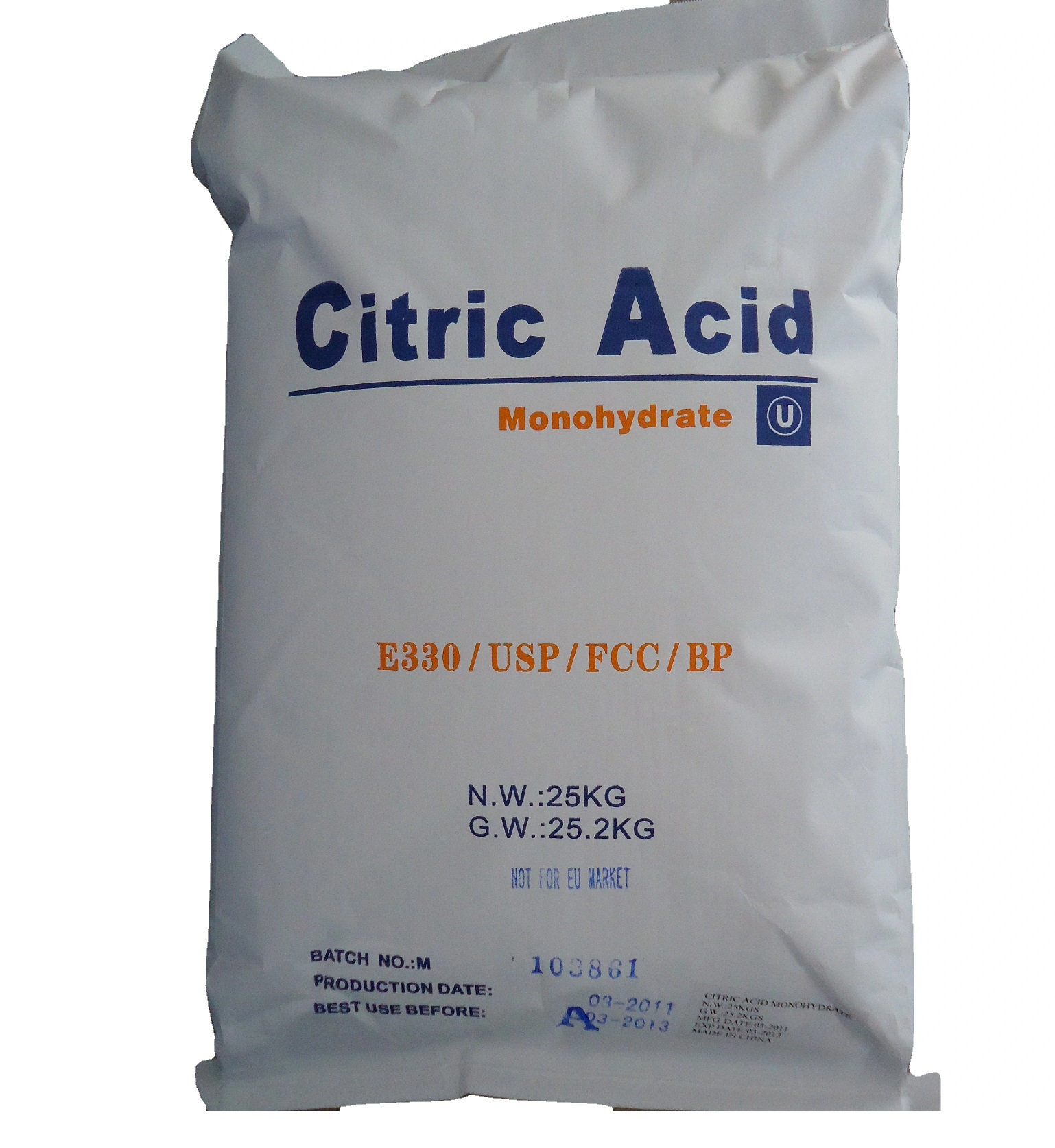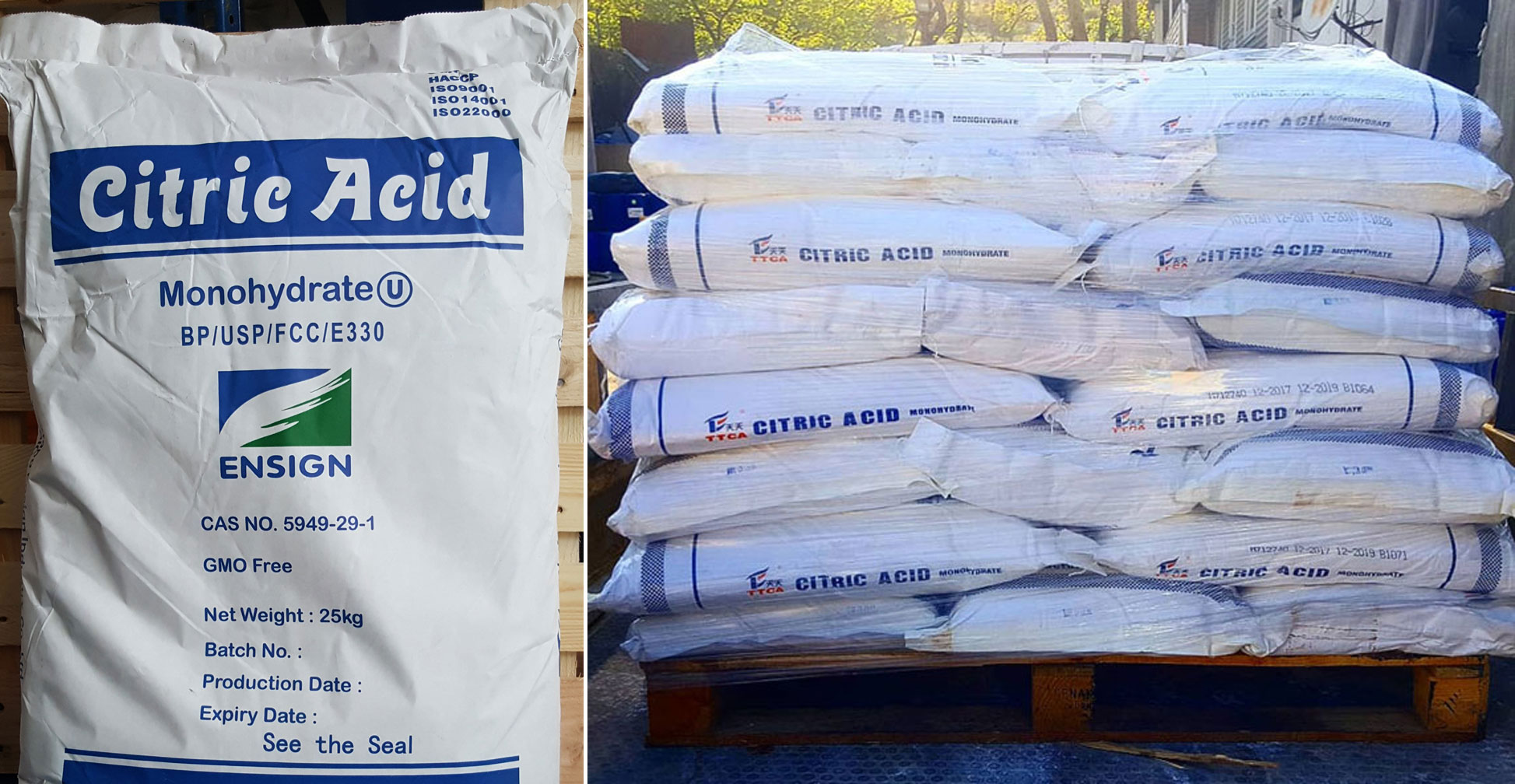We unleash your business potential by maximize the business innovation.
Send EmailCitric Acid, Citric Acid Anhydrate, Citric Acid Anhydrous, Citric Acid Monohydrate, 77-92-9, E330, 5949-29-1
Citric Acid Anhydrate, also known as Citric Acid Anhydrous, is a form of citric acid that does not contain water molecules in its crystal structure. Here are some key properties and uses:
Properties:
-
Chemical Formula: C₆H₈O₇
-
Molecular Weight: 192.12 g/mol
-
Appearance: White, crystalline powder
-
Density: 1.67 g/cm³ at 20°C
-
Melting Point: 153–159°C
-
Solubility: Highly soluble in water and ethanol
-
pH: Around 2.2 in a 1% aqueous solution
-
Citric Acid Anhydrous: CAS Number 77-92-9
Applications:
-
Food Industry: Used as a flavoring agent, preservative, and pH regulator in beverages, candies, and processed foods.
-
Pharmaceuticals: Acts as an excipient in tablets and as a pH adjuster in formulations.
-
Cosmetics: Used in skincare products for its exfoliating and pH-balancing properties.
-
Cleaning Products: Effective in removing mineral deposits and as a chelating agent.
-
Industrial Use: Found in detergents, metal cleaning, and water treatment processes.
Citric Acid Monohydrate is a hydrated form of citric acid that contains one molecule of water per molecule of citric acid. Here are its key properties and uses:
Properties:
-
Chemical Formula: C₆H₈O₇·H₂O
-
Molecular Weight: 210.14 g/mol
-
Appearance: White, crystalline powder
-
Density: Approximately 1.54 g/cm³
-
Melting Point: Decomposes at around 100°C
-
Solubility: Highly soluble in water and ethanol
-
pH: Around 1.8 in a 5% aqueous solution
-
Hygroscopic Nature: Absorbs moisture from the air
-
Citric Acid Monohydrate: CAS Number 5949-29-1
Applications:
-
Food and Beverage: Used as a flavoring agent, preservative, and acidulant in soft drinks, candies, and processed foods.
-
Pharmaceuticals: Acts as an excipient and pH adjuster in formulations.
-
Cosmetics: Found in skincare products for its exfoliating and pH-regulating properties.
-
Cleaning Products: Effective in removing limescale and as a chelating agent.
-
Industrial Use: Utilized in detergents, metal cleaning, and water treatment.
Molecular Formula (Citric Acid Anhydrate); C6H8O7
Molecular Weight; 192.124 g/mol
Chemical Name; Citric Acid Anhydrate
CAS Number; 77-92-9 Anhydrate and 5949-29-1 Monohyrate
It is a naturally occurring fruit acid. It is commercially produced by fermentation of a carbohydrate substrate. Citric Acid is an organic acid and pH control agent most commonly used in foods, beverages, pharmaceuticals and technical applications.
It takes its name from the Latin name that resembles a fruit such as citrus, i.e. lemon.
Citric Acid Anhydrate is a tricarboxylic acid. And it is found in small amounts in almost all plants and animals.
It is non-toxic and has low reactivity. Citric Acid forms a large part of the tricarboxylic acid cycle, so it helps increase energy.
Other Names Are As Follows;
Citric Acid
Citrate
77-92-9
2-hydroxypropane-1,2,3-tricarboxylic acid
Anhydrous Citric Acid
2-Hydroxymetyrocarbonic Acid
3-Carboxy-3-hydroxypentane-1,5-dioic acid
P-Hydroxytricarballylic Acid
Citrate Ion
99% Citric Acid
Anhydrous citrate
E330
What are the Physical and Chemical Properties of Citric Acid Anhydrate?
It is an anhydrous acid.
It is colorless and white in appearance.
It is available in crystalline or powder form.
It has a strong acidic structure.
It is slightly soluble in ether. Citric Acid Anhydrate is well soluble in ethanol. It is approximately 96% soluble.
It is completely biodegradable. It is soluble in water. It has an odorless chemical property.
Its density is 1.66 g/cm3 (20 °C).
Its boiling point is 310 °C.
Melting point is 153 ° C.
pH value is approximately 3.5.
